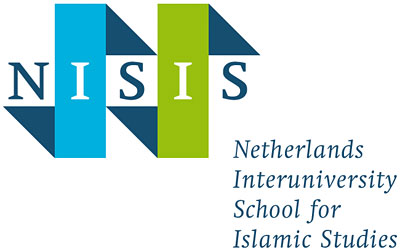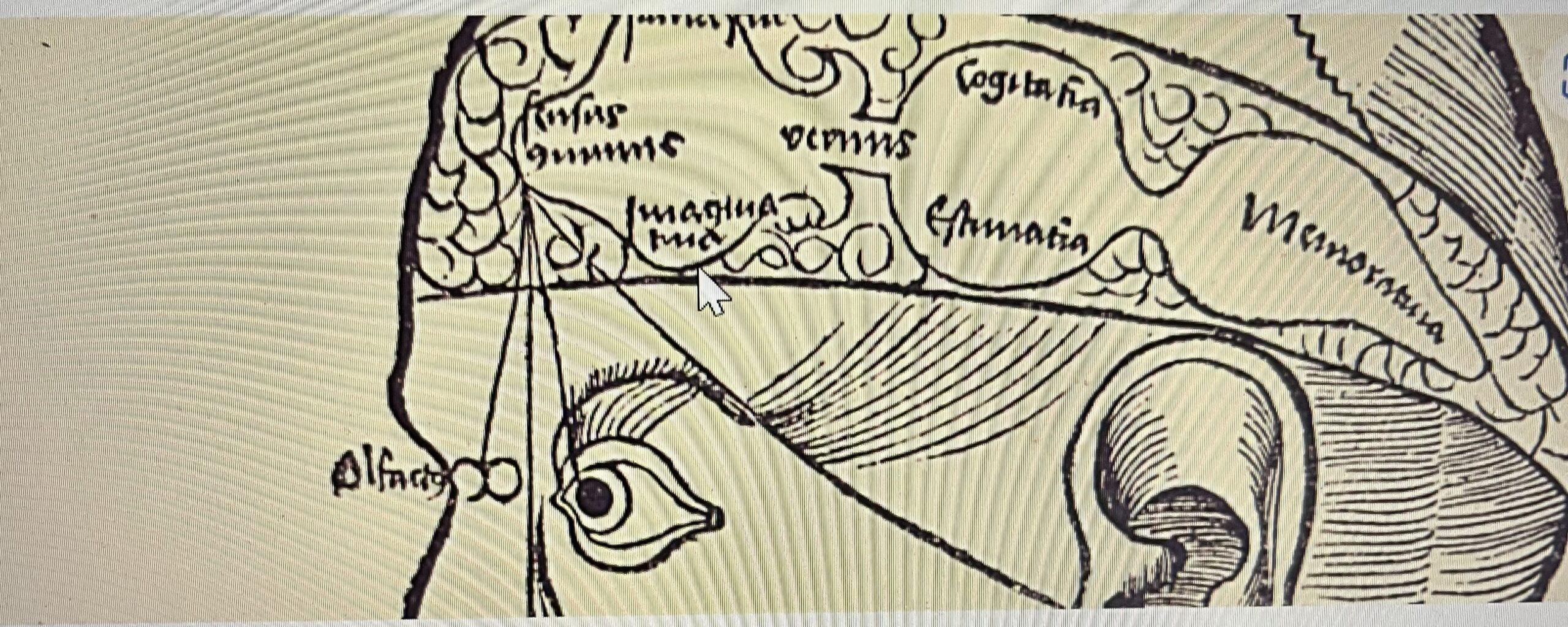Agenda
Reception and Mis/Perception in Transcultural Intellectual History
Interdisciplinary workshop organized by History of Philosophy, Islamic and Arabic Studies, and Cultural History
Please register by sending an email to P.G.Ziche@uu.nl, C.R.Lange@uu.nl, or S.D.Demendoncavirgi@uu.nl
Reception processes always are forms of perception, and even more: of interpretation, appropriation, instrumentalization. We also know that perception never can be a straightforward mapping of an object to a representation. Reception studies, addressing long-term and/or cross-cultural (interreligious, context-transcending, …) processes of appropriation can flesh out (and also profit from) these very generic remarks. Talking about “the” “East”, “the” “West”, “Christianity” and “Islam”, “philosophy” and “poetry”, “Europe” and “Asia”: there is no end to placing quotation marks around each and every term used in discussing such concepts, regions, cultural entities, and their relations. These reception processes have, at the same time, a very distinct impact upon “our” understanding of these cultural entities. A good strategy to come to term with reception processes is to work from case studies, examining the interaction of perception and reception in constituting our terminologies and the entities to which they refer. This is what we propose to do here, via bringing together perspectives from Islamic and Arabic studies, the history of philosophy, and cultural history, and by covering topics from Antiquity up to 20th-century philosophy, from love literature to religious dialogue.
Morning session: 9:30-12:15
Location: Kromme Nieuwegracht 80, Ravensteijnzaal
9:30-10:15: Sarah Virgi:
The Core Parts and the Luminous Body: Materialist Answers to the Question of Personal Identity from Alexander of Aphrodisias to Fakhr al-Dīn al-Rāzī
10:15-11:00: Richard Calis:
Dialogue in Early Modern European and Middle Eastern Christianity, 1550-1700
11:00-11:30: Coffee & Tea
11:30-12:15: Christian Lange:
Necklaced Doves and Perfumed Gardens: 19th- and 20th-Century Western and Eastern Perspectives on Arabic Love Literature
12:15-14:00: Lunch break
Afternoon session, 14:00-17:00
Location: Janskerkhof 13, Stijlkamer (0.06)
14:00-14:45: Paul Ziche:
Romantic Repercussions: Intercultural Perspectives on Occident vs. Orient in the Aftermath of Romanticist Traditions (Löwith, Hofmannsthal, and Others)
14:45-15:30: Mauro Bonazzi:
“Even a Papuan is a Man”: Husserl, the Good Europeans and the Other
15:30-16:00: Coffee & Tea
16:00-17:00: Hanif Amin Beidokhti (Munich):
The Practice of Historiography of Philosophy in the long 20th-Century in Iran: History, Modes, and Motives
Abstracts:
Sarah Virgi:
The Core Parts and the Luminous Body: Materialist Answers to the Question of Personal Identity from Alexander of Aphrodisias to Fakhr al-Dīn al-Rāzī
Amid the 12th and 13th-century critique of Avicennan philosophy, scholars within the theological and philosophical in the Islamic world grappled with the question of what constitutes personal identity. It is widely acknowledged that Avicenna (Ibn Sīnā, d. 1037) viewed the immaterial soul as the carrier of personal identity. One of the arguments presented to sustain this claim was that the physical body continuously undergoes change, although the person remains identical. For Avicenna and other authors in the falsafa tradition (Greek-inspired philosophical movement in the Islamic world), this meant that the soul was the carrier of personal identity, for, by virtue of its immateriality, it could remain unaffected by bodily changes. Two materialist responses emerged in reaction to this claim in the post-Avicennan period: the first posited the existence of enduring “core parts” (ajzāʾ aṣliyya) in the physical body, unaltered from the beginning of life to death, suggesting their role in ensuring the persistence of personal identity. This concept, introduced by al-Ghazālī (d. 1111) in the Tahāfut al-falāsifa, and other scholars in the theological tradition before him, such as ʿAbd al-Jabbār (d. 1025), was later developed by Fakhr al-Dīn al-Rāzī (d. 1210) in his early kalām works. The second response, also from al-Rāzī, considered that the enduring parts could be understood as a subtle luminous body within the physical body, unaffected by its changes, providing an alternative to the “core parts” theory. Notably, both al-Ghazālī and al-Rāzī, in their arguments, draw from ancient philosophical conceptions of material persistence and growth, which can be traced back to Alexander of Aphrodisias’ De Mixione. This paper will explore these materialist perspectives on personal identity, highlighting the evolution from the philosophical explanation of growth in Alexander, to the “core parts” theory and the luminous body concept. However, although the points of comparison are per se remarkable, the Islamic approach carries its own specificities. As this paper will argue, unlike the previous conception of material persistence in Alexander, al-Ghazālī and al-Rāzī’s materialist conceptions of personal identity betray a specific legal and eschatological agenda: justifying bodily punishment and reward, and the possibility of bodily resurrection in the afterlife.
Richard Calis:
Dialogue in Early Modern European and Middle Eastern Christianity, 1550-1700
The Reformations have long been seen as an inherently European phenomenon in which Christians from the Middle East played a minor role. Yet throughout early modernity Protestants and Catholics were in direct dialogue with Eastern Christians through letters, diplomacy, and empire. Through a case study on seventeenth-century dialogue between Calvinists and Greek Orthodox Christians, this paper explores how Christians from the Middle East shaped the nature and direction of the Reformations. Comparative in its approach, global in its methodology, it demonstrates how the Reformations were a polyfocal phenomenon and looks to develop a new model for writing Eastern Christians back into our histories of early modern global Christianity.
Christian Lange:
Necklaced Doves and Perfumed Gardens: 19th- and 20th-Century Western and Eastern Perspectives on Arabic Love Literature
Ibn Ḥazm’s 11th-century The Necklace of the Dove and al-Nafzāwī’s 15th-century The Perfumed Garden were the two most well-known and widely circulating texts of Arabic love literature in 19th- and 20th-century Europe. They represent two starkly different sensory styles, visual and ‘distal’ in the case of Ibn Ḥazm, tactile and ‘proximal’ in the case of al-Nafzāwī. What the two texts have in commong is the fact that, despite their fame in the West, they were virtually unknown in the Arab-speaking world throughout the colonial period. It was only in the second half of the 20th century that Arab writers began to pay any sustained attention to them, on occasion using them as a bottle opener to reclaim a certain precolonial Arabo-Muslim sensualism. What accounts for the success of these two texts in Europe, and for the relative neglect they received in the colonial Near East and North Africa? And how are we to understand the ‘renaissance’ of Ibn al-Hazm’s and al-Nafzawi’s works among postcolonial Arab publics?
Paul Ziche:
Romantic Repercussions: Intercultural Perspectives on Occident vs. Orient in the Aftermath of Romanticist Traditions (Löwith, Hofmannsthal, and Others)
Karl Löwith, pupil of Heidegger, early émigré, long-term professor in Japan, historian of philosophy, reflected extensively about the relationship between „Europe“ (or: „occident“) and the orient. He does so by drawing upon his interpretation of classical German philosophy and the Romanticist tradition, by adopting concepts from Nietzsche, but also by critically (interestingly: in a rather constructive form of critique) with his contemporaries – Hugo von Hofmannsthal, Heidegger, Scheler, Carl Schmitt, all of which also had their own perspective upon Romanticist traditions. And: Löwith explained his reading of the phenomenon of „Europe“ and of the occidental traditional to colleagues in Japan, based upon his long-term employment in Sendai, Japan. What makes these authors particularly interesting, is how their analyses of their own times, their reconstruction of the orient-occident-relationship, and their references to cultural traditions are precariously perched between (very, or even radically) conservative leanings (Hofmannsthal has proposed the term „conservative revolution“ for the phenomena he described) on the one hand, a keen awareness of (radical) modernist trends in their times on the other. In this paper, I will place the perspectives upon the occident-orient relationship as developed by this group of authors into their context, with a particular emphasis upon the complicated relationship between reactionary and modernist aspects in their thought, and in their interpretation of this relationship.
Mauro Bonazzi:
“Even a Papuan is a Man”: Husserl, the Good Europeans and the Other
Husserl’s Vienna Lecture is an ideal text to discuss the problematic relation between philosophy, the European tradition and oriental thought. The text contains several assertions about the other (Oriental) civilizations which sound very controversial, to our ears. But when read in their own cultural context as a reaction to Nazi ideology, they also raise some interesting questions. Most importantly they celebrate the importance of a universalist approach – is it an approach we still need, today?
Hanif Amin Beidokhti:
The Practice of Historiography of Philosophy in the long 20th Century in Iran: History, Modes, and Motives
Historiography of philosophy in Persian as a genre of philosophical literature is a young phenomenon, having its roots in the encounter of the Iranian philosophical community with modern European philosophy. European historiography of philosophy as a discipline itself is modern. It was initiated in the 18th century and evolved thereafter with the historiography of falsafa (Arabic/Islamic philosophy) as its by-product. Despite its youth, the Persian historiography of philosophy has produced considerable outcomes. This presentation will trace the historical development that led to the emergence of this new genre in Iran. It will then classify these works and highlight their distinctive features. The focus will shift to two prominent figures who, from this standpoint, represent the main streams of future historiography of philosophy in Iran and their engagement with modern European philosophy and its historiography. This body of literature offers insights not only for philosophers but also for scholars in cultural studies, social sciences, and political sciences. Similar to their European counterparts, Persian historiographies have been utilized to shape political or religious identities by constructing nativist or non-nativist grand narratives.


